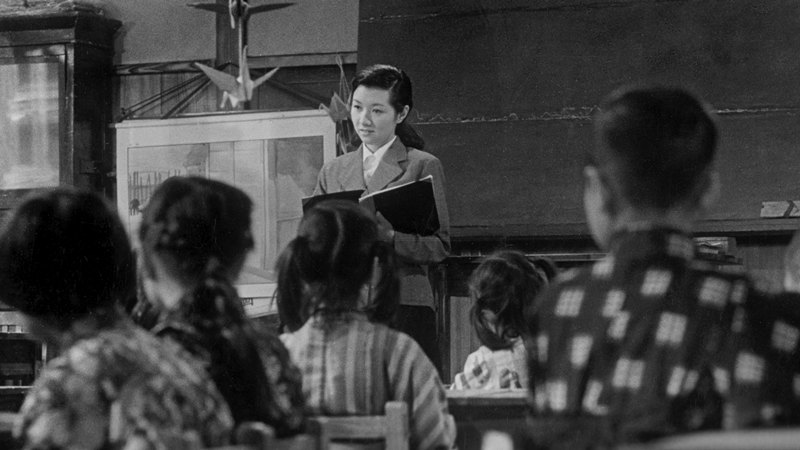Some films just don’t feel like Best Pictures. I always thought that “Apocalypse Now” should have won the 1980 Academy Award rather than “Kramer vs. Kramer,” but the screen adaptation of Avery Corman’s book about the breakup of a marriage (and a surprisingly civil custody battle) came along at just the right time. It was in the late Seventies when courts began deviating from their unwritten rule of always awarding custody of children to the mother, and “Kramer vs. Kramer” was a powerful “no-fault” statement about divorce. There’s nothing that feels exploitive here, nor melodramatic, or even one-sided. This film by Robert Benton (“Places in the Heart,” “Nobody’s Fool”) is a quiet and unbiased look at the complexities of human relationships. The woman who leaves her husband and child to “find” herself in California is just as sympathetic (and flawed) a character as the man who was so career-driven that he didn’t even know what grade his precocious young son was in.
“Kramer vs. Kramer” has a lot of subtle things to say about the way that society viewed parenting and divorce in 1979, and as someone who was the custodial parent of four children (ages 2, 3, 4 and 6) that year, I can tell you this: childrearing was strictly considered the province of women. Once, when I took all four kids to the food store to shop, the checker asked where Mom was. “In a different state,” I replied, and then heard a lecture from the woman about how awful it was and how the children belonged with their mother. Things like that happened to me all the time. There isn’t quite that level of prejudice here, but similar attitudes come across loud and clear in the workplace–where Ted Kramer quickly goes from wunderkind to odd-man-out because of trying to juggle home life and work.
Benton and cinematographer Néstor Almendros combine for some powerfully suggestive shots that underscore not just the emotional tone of a scene, but also a character’s “place” in the arc of his or her development. When, for example, Ted is trying to be cheerful and upbeat as he fakes domesticity while trying to figure it out, the filmmakers use a closed frame to show how boxed in he suddenly feels . . . an irony that’s reinforced when the scene is one that’s shot from a bedroom where in the foreground we see a photo of the missing mother and in the background hallway Ted is trying to be a good dad, looking diminished. Juxtapositions like that really add a nice layer to an already thoughtful script and with performances that bring even more complexity to the story.
“Kramer vs. Kramer” won five Academy Awards. In addition to best picture, Dustin Hoffman won Best Actor, Meryl Streep won Best Supporting Actress for her portrayal of Joanna Kramer, and Benton won for both Best Adapted Screenplay and Director. And for a film that deals with domestic life, everything is handled with grace and compassion.
There’s not much plot, really. On the day that Ted finally lands a big account he returns home typically late to find his wife sitting there with her bag packed. She leaves, and in no time a family friend (Jane Alexander) comes in and the blame-game begins. Such debates never go on too long, nor do they take center-stage. But they’re present in nearly every scene. As Ted tries to put on a cheerful face for the sake of his son, it’s hard not to think of the broader situation of parents everywhere who must be brave for the sake of their children. And when young Billy (Justin Henry) tests his father by helping himself to ice cream for dinner despite Ted’s threats, it’s hard again not to think of how typical this all is for children and parents. And in that one moment of “losing it” that comes on the heels of days, even weeks of trying to be the perfect single parent, Ted’s shortcomings mirror parents’ everywhere–though the cinematic version is probably a little more colorful (“I hate you”; “I hate you right back, you little shit”). But touches like that–including Billy catching Daddy’s “friend” nude in the hallway–are what make “Kramer vs. Kramer” a powerful film. (The box says “PG,” but the nudity and language ratchet this up to a PG-13 in the current rating system).
The second act largely consists of Ted and Billy getting to know each other, while the third act introduces Joanna again, back from California and filing for custody of the boy. The stakes are high for both of them–all three of them, actually–but nothing describes the tone and style of this film better than a scene in which Ted tries to force the hand of potential employers during their annual Christmas party. Amid all the frivolity and carefree office hanky-panky here’s a very serious Ted, who, if he doesn’t have a job by morning, has absolutely no chance of winning custody. But juxtapositions are what Benton does best, and “Kramer vs. Kramer” gains its power from this kind of everyday poetry of life. Is it a blockbuster film? Not really. But it’s a solid one, and sensitive performances–even from young Henry–give the film its impact.
Video:
Sony has been going with an AVC/MPEG-4 codec on its catalog titles, and as with the rest this transfer is a good one–no visible artifacts. But the source materials aren’t exceptional, and so neither is the picture quality. The master is 30 years old, and there are a number of scenes that are slightly grainy and a few instances of exterior shots where there’s a little “noise.” But colors are brighter than I expected, and while the overall picture is a little soft, this again seems the result of less-than-stellar source materials rather than the transfer. Black levels are good but not strong, and “Kramer vs. Kramer” is presented in 1.85:1 aspect ratio.
Audio:
Sony prefers a Dolby TrueHD 5.1 for its Blu-rays, and while I favor PCM, this film does just fine with the TrueHD. It’s mostly dialogue, and while the spread seems a little narrow and there isn’t as much rear-speaker involvement, the soundtrack feels clean and clear. Additional audio options are Portuguese and French TrueHD 5.1 and Spanish Dolby Digital 5.1, with subtitles in English, English SDH, French, Spanish, and Portuguese.
Extras:
The only bonus feature, not counting BD-Live (and I DON’T count this as a legitimate bonus feature, since studios haven’t figured out what to do with it and only use it for links, downloads, and other commercial purposes) is a 50-minute making-of feature, “Finding the Truth.” In it, cast and filmmakers talk about the whole process, including script development, casting, filming, and the show’s themes. It’s an average to better-than-average documentary that appeared first on the DVD.
Bottom Line:
You have to wonder whether family counselors make clients watch this film. It would certainly seem to have therapeutic value, because it covers all points of view with sensitivity–better, probably, than one of those office role-playing games–and it shows that it’s possible for a couple to be out of love and breaking up without hurting each other unnecessarily. There’s a level of civility here that I suspect too many marriage dissolutions and custody battles lack. Does that make it idealistic, rather than realistic? Perhaps. But that’s not a bad thing.


